ACR Expands Pilot Program Focused on AI and Radiology
|
By MedImaging International staff writers Posted on 06 Jul 2019 |

Image: The AI-LAB as a service provides a vendor-neutral framework to facilitate the development, modeling and validation of AI tools (Photo courtesy of ACR).
Radiology professionals from seven renowned health care institutions will use the ACR AI-LAB to demonstrate the process of creating investigational artificial intelligence (AI) models from image data without the use of a programming language. Using an AI model developed at one institution, each of the seven institutions will have the ability to evaluate and optimize the model for their own investigational use.
The American College of Radiology {(ACR), Reston, VA, USA} is making available the ACR AI-LAB as a service, which provides a vendor-neutral framework to facilitate the development, modeling and validation of AI tools. Based on the recently announced ACR AI-LAB reference architecture, this pilot represents a major milestone in the effort to allow institutions to develop high-quality algorithms that address local clinical needs, some of which may ultimately be made commercially available. In addition to the seven institutions, there are two major technology contributors; NVIDIA is providing software and edge infrastructure, and Nuance is providing last-mile integration to the participating radiologist.
The pilot – originally including Massachusetts General Hospital and The Ohio State University – now also includes Lahey Hospital and Medical Center, Emory University, The University of Washington, the University of California San Francisco and Brigham and Women’s Hospital. NVIDIA will provide its NVIDIA Clara AI software toolkits at no cost to the institutions to perform the annotation creation, transfer learning, and pipeline integration. In addition, Nuance will provide the last-mile technology required to integrate AI for the participating radiologist. Once the pilot is complete, the initiative is anticipated to progressively expand to all institutions interested in participating.
Sharing local AI models from image data between institutions for fine tuning — while patient information remains securely on site at the originating institution — has not previously been done successfully in radiology at this scale. This is due, in part, to the variability in how medical images are created, including the equipment, software, and protocols used. The pilot sites will use ACR AI-LAB to evaluate AI developed elsewhere, modifying the investigational algorithms to improve performance based on testing and evaluating them on local patient data. Creating the local AI models will not require ACR AI-LAB users to have programming skills. ACR AI-LAB allows users to adjust and change AI models without having to make line-by-line changes to the underlying code.
Once the pilot is complete, the consortium is anticipated to progressively expand to more institutions and vendors interested in participating. The investigational algorithms resulting from this project will undergo further evaluation and refinement by sites should they pursue commercialization, including obtaining appropriate regulatory clearance or approvals, as applicable.
“Today marks a major step in accelerating the development of AI for medical imaging. We know algorithms can underperform when deployed at sites where they weren’t trained. Now, radiologists in the pilot program will have access to AI algorithms developed outside their institutions in order evaluate a model’s performance using their own data and, as necessary, retrain the algorithm using their local data to enhance its performance,” said Bibb Allen Jr., MD, FACR, ACR Data Science Institute (ACR DSI) Chief Medical Officer.
“AI technology is entering the next phase where software writes software and less computer science expertise is required,” said Abdul Hamid Halabi, director of healthcare, at NVIDIA. “Radiologists have always been technology trailblazers. Working with the ACR AI-LAB to bring NVIDIA’s AI computing capability to the edge — where radiologists and their data reside — we are demonstrating that investigational AI tools can be made available to any imaging institution.”
Related Links:
American College of Radiology
The American College of Radiology {(ACR), Reston, VA, USA} is making available the ACR AI-LAB as a service, which provides a vendor-neutral framework to facilitate the development, modeling and validation of AI tools. Based on the recently announced ACR AI-LAB reference architecture, this pilot represents a major milestone in the effort to allow institutions to develop high-quality algorithms that address local clinical needs, some of which may ultimately be made commercially available. In addition to the seven institutions, there are two major technology contributors; NVIDIA is providing software and edge infrastructure, and Nuance is providing last-mile integration to the participating radiologist.
The pilot – originally including Massachusetts General Hospital and The Ohio State University – now also includes Lahey Hospital and Medical Center, Emory University, The University of Washington, the University of California San Francisco and Brigham and Women’s Hospital. NVIDIA will provide its NVIDIA Clara AI software toolkits at no cost to the institutions to perform the annotation creation, transfer learning, and pipeline integration. In addition, Nuance will provide the last-mile technology required to integrate AI for the participating radiologist. Once the pilot is complete, the initiative is anticipated to progressively expand to all institutions interested in participating.
Sharing local AI models from image data between institutions for fine tuning — while patient information remains securely on site at the originating institution — has not previously been done successfully in radiology at this scale. This is due, in part, to the variability in how medical images are created, including the equipment, software, and protocols used. The pilot sites will use ACR AI-LAB to evaluate AI developed elsewhere, modifying the investigational algorithms to improve performance based on testing and evaluating them on local patient data. Creating the local AI models will not require ACR AI-LAB users to have programming skills. ACR AI-LAB allows users to adjust and change AI models without having to make line-by-line changes to the underlying code.
Once the pilot is complete, the consortium is anticipated to progressively expand to more institutions and vendors interested in participating. The investigational algorithms resulting from this project will undergo further evaluation and refinement by sites should they pursue commercialization, including obtaining appropriate regulatory clearance or approvals, as applicable.
“Today marks a major step in accelerating the development of AI for medical imaging. We know algorithms can underperform when deployed at sites where they weren’t trained. Now, radiologists in the pilot program will have access to AI algorithms developed outside their institutions in order evaluate a model’s performance using their own data and, as necessary, retrain the algorithm using their local data to enhance its performance,” said Bibb Allen Jr., MD, FACR, ACR Data Science Institute (ACR DSI) Chief Medical Officer.
“AI technology is entering the next phase where software writes software and less computer science expertise is required,” said Abdul Hamid Halabi, director of healthcare, at NVIDIA. “Radiologists have always been technology trailblazers. Working with the ACR AI-LAB to bring NVIDIA’s AI computing capability to the edge — where radiologists and their data reside — we are demonstrating that investigational AI tools can be made available to any imaging institution.”
Related Links:
American College of Radiology
Latest Industry News News
- GE HealthCare and NVIDIA Collaboration to Reimagine Diagnostic Imaging
- Patient-Specific 3D-Printed Phantoms Transform CT Imaging
- Siemens and Sectra Collaborate on Enhancing Radiology Workflows
- Bracco Diagnostics and ColoWatch Partner to Expand Availability CRC Screening Tests Using Virtual Colonoscopy
- Mindray Partners with TeleRay to Streamline Ultrasound Delivery
- Philips and Medtronic Partner on Stroke Care
- Siemens and Medtronic Enter into Global Partnership for Advancing Spine Care Imaging Technologies
- RSNA 2024 Technical Exhibits to Showcase Latest Advances in Radiology
- Bracco Collaborates with Arrayus on Microbubble-Assisted Focused Ultrasound Therapy for Pancreatic Cancer
- Innovative Collaboration to Enhance Ischemic Stroke Detection and Elevate Standards in Diagnostic Imaging
- RSNA 2024 Registration Opens
- Microsoft collaborates with Leading Academic Medical Systems to Advance AI in Medical Imaging
- GE HealthCare Acquires Intelligent Ultrasound Group’s Clinical Artificial Intelligence Business
- Bayer and Rad AI Collaborate on Expanding Use of Cutting Edge AI Radiology Operational Solutions
- Polish Med-Tech Company BrainScan to Expand Extensively into Foreign Markets
- Hologic Acquires UK-Based Breast Surgical Guidance Company Endomagnetics Ltd.
Channels
Radiography
view channel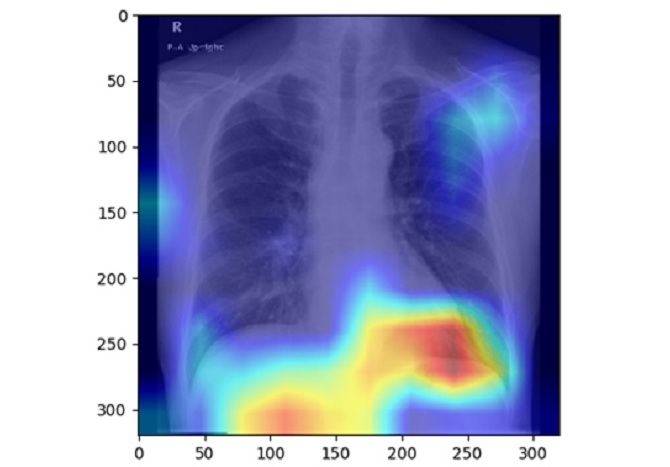
AI Detects Fatty Liver Disease from Chest X-Rays
Fatty liver disease, which results from excess fat accumulation in the liver, is believed to impact approximately one in four individuals globally. If not addressed in time, it can progress to severe conditions... Read more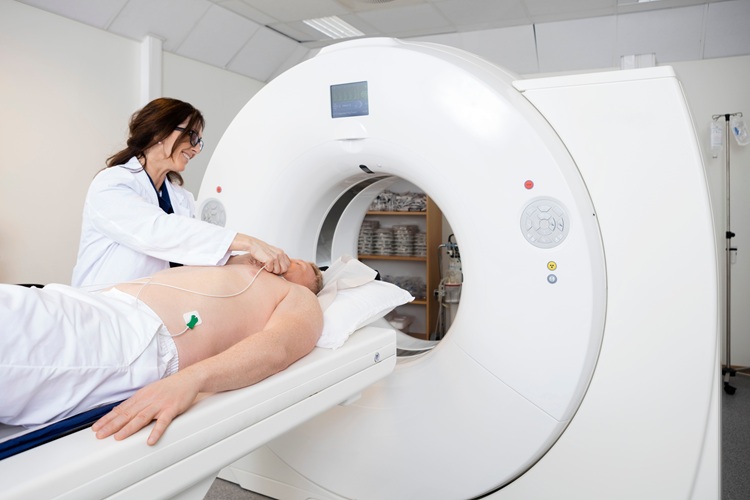
AI Detects Hidden Heart Disease in Existing CT Chest Scans
Coronary artery calcium (CAC) is a major indicator of cardiovascular risk, but its assessment typically requires a specialized “gated” CT scan that synchronizes with the heartbeat. In contrast, most chest... Read moreMRI
view channel
AI Model Outperforms Doctors at Identifying Patients Most At-Risk of Cardiac Arrest
Hypertrophic cardiomyopathy is one of the most common inherited heart conditions and a leading cause of sudden cardiac death in young individuals and athletes. While many patients live normal lives, some... Read more
New MRI Technique Reveals Hidden Heart Issues
Traditional exercise stress tests conducted within an MRI machine require patients to lie flat, a position that artificially improves heart function by increasing stroke volume due to gravity-driven blood... Read moreUltrasound
view channel
Wireless Chronic Pain Management Device to Reduce Need for Painkillers and Surgery
Chronic pain affects millions of people globally, often leading to long-term disability and dependence on opioid medications, which carry significant risks of side effects and addiction.... Read more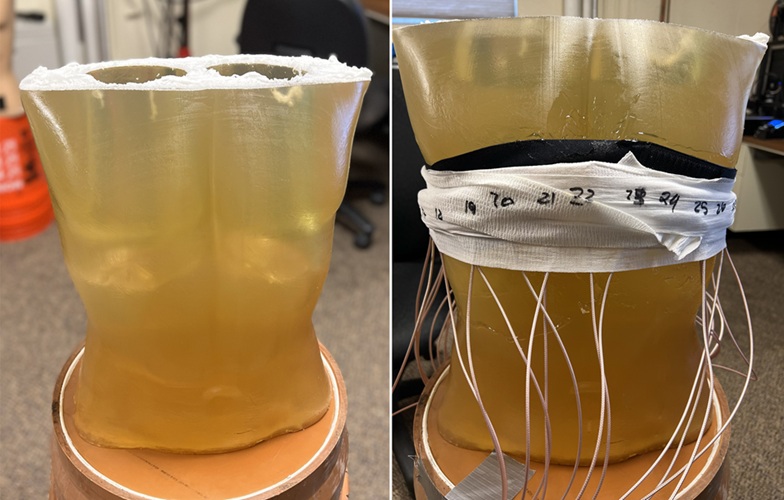
New Medical Ultrasound Imaging Technique Enables ICU Bedside Monitoring
Ultrasound computed tomography (USCT) presents a safer alternative to imaging techniques like X-ray computed tomography (commonly known as CT or “CAT” scans) because it does not produce ionizing radiation.... Read moreNuclear Medicine
view channel
Novel Bacteria-Specific PET Imaging Approach Detects Hard-To-Diagnose Lung Infections
Mycobacteroides abscessus is a rapidly growing mycobacteria that primarily affects immunocompromised patients and those with underlying lung diseases, such as cystic fibrosis or chronic obstructive pulmonary... Read more
New Imaging Approach Could Reduce Need for Biopsies to Monitor Prostate Cancer
Prostate cancer is the second leading cause of cancer-related death among men in the United States. However, the majority of older men diagnosed with prostate cancer have slow-growing, low-risk forms of... Read moreGeneral/Advanced Imaging
view channel
CT Colonography Beats Stool DNA Testing for Colon Cancer Screening
As colorectal cancer remains the second leading cause of cancer-related deaths worldwide, early detection through screening is vital to reduce advanced-stage treatments and associated costs.... Read more
First-Of-Its-Kind Wearable Device Offers Revolutionary Alternative to CT Scans
Currently, patients with conditions such as heart failure, pneumonia, or respiratory distress often require multiple imaging procedures that are intermittent, disruptive, and involve high levels of radiation.... Read more
AI-Based CT Scan Analysis Predicts Early-Stage Kidney Damage Due to Cancer Treatments
Radioligand therapy, a form of targeted nuclear medicine, has recently gained attention for its potential in treating specific types of tumors. However, one of the potential side effects of this therapy... Read moreImaging IT
view channel
New Google Cloud Medical Imaging Suite Makes Imaging Healthcare Data More Accessible
Medical imaging is a critical tool used to diagnose patients, and there are billions of medical images scanned globally each year. Imaging data accounts for about 90% of all healthcare data1 and, until... Read more











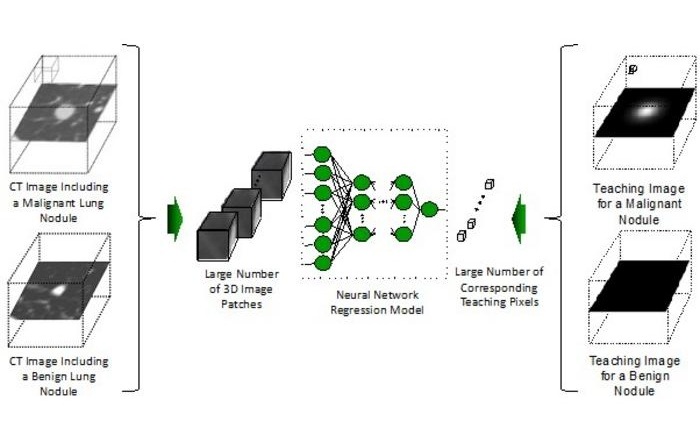
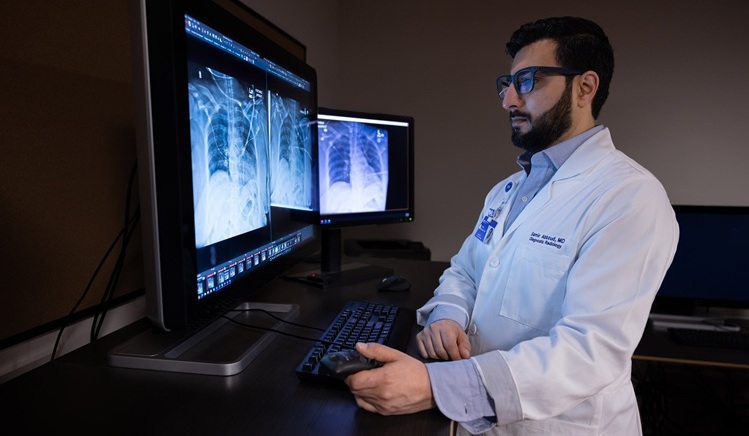



.jpeg)




